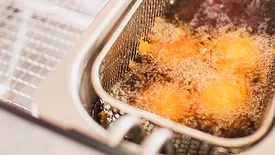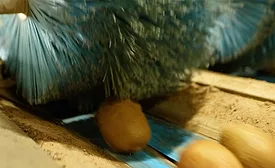Testing & Analysis
Air Quality Monitoring for Food Processors: Tackling the Problem of Dust
Air and its physical characteristics contribute to cross-contamination; capturing bioaerosols helps assess the air bioburden and prevent recontamination
August 18, 2025
Quantifying the Invisible: New Tools to Evaluate Bioaerosol Risks in Fresh Produce
Recent advances in biosensing and molecular diagnostics are allowing producers to better quantify the threat from bioaerosols at the field level
August 12, 2025
Never miss the latest news and trends driving the food safety industry
Newsletters | Website | eMagazine
JOIN TODAY!Copyright ©2026. All Rights Reserved BNP Media.
Design, CMS, Hosting & Web Development :: ePublishing











